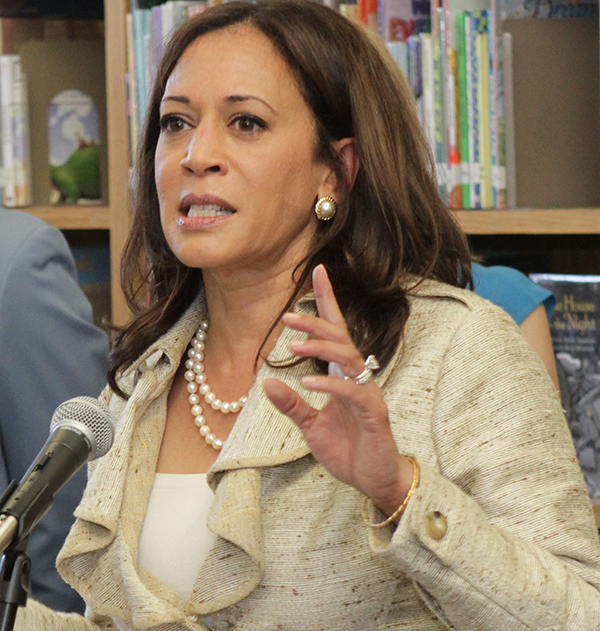Wave Wire Services
ORANGE — A Chapman University law professor whose column questioning Sen. Kamala Harris’ eligibility to serve as vice president set off a firestorm of debate and earned him a nod from President Donald Trump, brushed aside criticism of his opinions Aug. 14 as “nonsense.”
“It’s been quite an interesting couple of days,” John Eastman told City News Service.
Critics lambasted Eastman for his Newsweek column about Harris, saying it has fueled a new “birther” movement — resurrecting the conspiracy theory originally contending that Barack Obama was born in Kenya instead of Hawaii, and thus ineligible to be president.
That movement was led primarily by then-private citizen Donald Trump.
Although Eastman’s column raised eyebrows when it was published Aug 12, a day after Harris was named as presumptive Democratic presidential nominee Joe Biden’s running mate, it erupted into a national debate when Trump discussed it at the White House Aug. 13 and praised Eastman as “a very highly qualified, very talented lawyer.”
Trump didn’t dismiss the contention that Harris — who was born in Oakland — may not be eligible to serve as vice president, saying, “I heard it today that she doesn’t meet the requirements,” later adding, “I have no idea if that’s right.”
Eastman told City News Service he thinks it’s ironic he has received so much criticism “for publishing a scholarly article on a subject I’ve been writing about for 20 years.”
“Email and Twitter trolls are quite something,” Eastman said. “I hope our politics can walk back from the precipice where Twitter troll analysis of an issue seems to become the dialogue these days.”
Eastman argued that constitutional law is not yet settled on the question of whether being born in the United States automatically makes one a citizen. Many other scholars disagree and have established that as the standard, but Eastman said the authors of the law had two requirements:
- One, that the person must be born on American soil.
- And two, that the person be subject exclusively to U.S. law. To be president, one must be a natural-born citizen of the United States.
Harris was born in Oakland in 1964, but Eastman questions whether her Jamaican father and Indian mother were in the country on what today would be considered a green card.
“It’s quite possible they applied for and got green card status,” Eastman said. “But, also going to school at the time, it’s much more likely they were here on student visas.”
If they were here on student visas, that wouldn’t be enough to make Harris eligible to be president, but it would not preclude her from being a senator, Eastman argued.
“Maybe at the end of the day, the Supreme Court will say it doesn’t matter” regarding the parents’ status, he said. “They may say birth is all we need, but they’ve never done that yet. And it remains an open question.”
Eastman denied allegations that he was stooping to “birtherism,” or that his opinion is based in racism or sexism.
“To say I only did this because she is Black and a woman is nonsense,” Eastman said.
He also brushed aside criticism that his column was a case of sour grapes, since he ran unsuccessfully for state attorney general in 2010 — a position that Harris ended up winning. Eastman said he ran second in the Republican primary, losing to former Los Angeles District Attorney Steve Cooley.
“So I never ran against Kamala Harris,” Eastman said. “If I have sour grapes against anyone, it would be Steve Cooley,” he added with a laugh.
Eastman recalled participating in a debate with the Democratic candidates because he was the only Republican who agreed to.
“I walked out of there saying she was the best of the Democratic candidates they had,” Eastman said. “If that demonstrates I’m holding a grudge, then people are not looking very carefully.”
Eastman acknowledged that he believes Harris’ stance “on legal issues is terrible,” and he is critical of her time as attorney general.
The uproar prompted by the column hasn’t hurt Eastman’s standing at Chapman University.
“Chapman University respects the academic freedom of all its faculty,” Jamie S. Ceman, Chapman’s vice president of strategic marketing and communications, said. “The opinions expressed by faculty are their own and we will never restrict their right to express it, however, they do not represent the opinions of the institution.”











